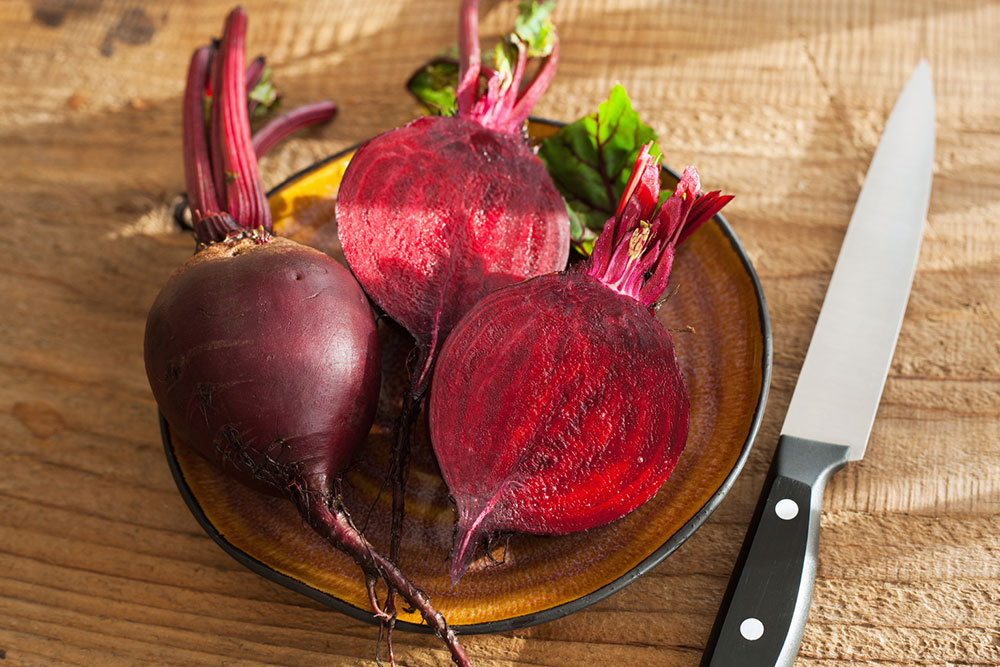10 foods that can help prevent lung diseases

Lung health is essential for one’s overall well-being. While not much can be done about environmental pollutants that can increase the risk of lung diseases, one can follow a nutrient-rich food regime to promote lung function and reduce the impact of free radicals on them. Let’s explore ten foods that can help reduce the severity of lung diseases such as asthma, chronic obstructive pulmonary disorder (COPD), and pulmonary fibrosis and improve one’s quality of life.
Beets
Beetroots and beet greens are a great source of nitrates, which can help improve lung function. Nitrates help relax blood vessels, reduce blood pressure, and improve oxygen intake. This can improve lung performance among those with chronic lung conditions such as COPD and pulmonary hypertension. They are also a source of magnesium, potassium, vitamin C, and carotenoid antioxidants, which can boost immunity.
Apples
Regular intake of apples may help boost lung function. This is because apples contain high amounts of antioxidants such as flavonoids and vitamin C, which can reduce the risk of asthma, lung cancer, and COPD, and improve lung performance.
Turmeric
Turmeric is a powerful antioxidant and anti-inflammatory food that is popularly used in several cuisines around the world. According to some studies, the main active ingredient in turmeric, curcumin, may help enhance lung function by 9.2%.
Blueberries
Blueberries are a rich source of anthocyanins such as malvidin, cyanidin, peonidin, delphinidin, and petunidin. These have antioxidant properties that can shield the lungs from oxidative stress, and reduce the rate of lung function decline by up to 38%.
Green tea
Green tea contains a catechin known as Epigallocatechin gallate (ECGC), which has antioxidant and anti-inflammatory properties. Studies have shown that ECGC can reduce the risk of fibrosis or tissue scarring in the lungs, helping promote lung function.
Red cabbage
In addition to its fiber content, red cabbage is a great source of anthocyanins. These properties may make the vegetable a great option to keep one’s lungs healthy and disease-free.
Coffee
A cup of coffee is a refreshing way to start one’s morning. Coincidentally, coffee can also help protect lung function, as it contains caffeine and antioxidants. Coffee acts as a vasodilator, which means, it helps expand blood vessels to improve blood flow in the body. This can help reduce symptoms of asthma temporarily. Most healthy adults can have up to 400 milligrams of caffeine (or four cups of brewed coffee) per day.
Whole grains
Whole grains are a rich source of fiber, which has antioxidant and anti-inflammatory properties. They also contain vitamin E, selenium, and essential fatty acids, which can help promote lung health. Some healthy options to include in one’s meal plan are brown rice, whole wheat bread or pasta, oats, quinoa, and barley.
Tomatoes
Tomatoes are one of the best sources of the carotenoid lycopene, which is known for its powerful antioxidant properties. It can help reduce airway inflammation among people with asthma and decrease the risk of COPD complications. It has also been associated with less decline in lung function among young adults.
Leafy greens
Leafy green vegetables such as spinach, Swiss chard, and broccoli are rich in carotenoids, a powerful antioxidant that can protect lung function. Due to their nutrient profile (vitamins A, B, C, E, and K, folate, iron, magnesium, potassium, zinc, calcium, phosphorus, and sodium), they can also help build immunity and reduce the risk of infections.

